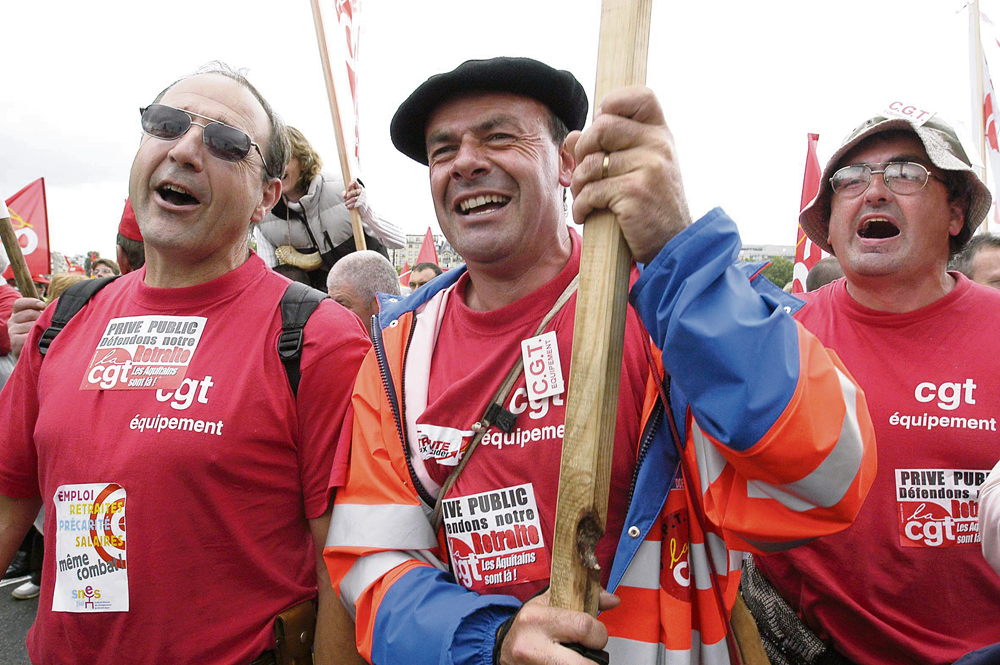France: Workers’ struggle against government intensifies: vital need for political alternative
Clare Doyle, Committee for a Workers’ International (CWI)
Far from abating, the battle over France’s labour law reform has intensified. The Hollande-Valls government has said it will impose the changes and is digging its heels in. The main trade union federation has said it will fight to the end.
The so-called socialist government has talked of ‘softening’ the terms of the laws drawn up by Labour Minister Myriam El Khomri. Given his continuing unpopularity, Francois Hollande has begun to worry about his chances of success in next year’s presidential election.
But few believe the government is prepared to back down, acting as they are in collusion with the top industry bosses to maintain profits.
The European football championship is due to start in France on 10 June, with matches taking place in stadiums across a gridlocked country. A national protest rally in Paris is due for 14 June when the hated bill goes to the upper house of the French parliament – the Senate.
The mood of combativity that exists in France as a whole has reached its most intense in the northern port of Le Havre.
“The port is blocked, the police dare not take on the workers’ blockades and there is a daily general assembly of representatives from every workplace and students as well. It has become, in effect, the strike capital of France”, writes a CGT activist and member of Gauche Revolutionnaire (GR – French section of the CWI).
Outside France, the scenes of violent confrontations reach the media. Inside France the government-dominated media attempt to use incidents of battles with the police to discredit the movement.
In spite of everything, still up to 70% of the French people support this monumental struggle which has seemed to be moving toward an all-out general strike. CGT leader Philippe Martinez has now hinted that some deal could be done and negotiations may be organised.
In this situation, as GR explains, it has been the weakness of the trade union leaderships which have dragged out this dispute.
One of the national union federations allied to the ‘socialist’ government, has accepted the attacks on labour rights from the beginning.
The others – the biggest being the CGT, plus Force Ouvriere and Solidaires/Sud, etc – have opposed it all the way but have proved unwilling and incapable of leading a determined and coordinated struggle up to, and including, a general strike to bring down this anti-working class government of Hollande/Valls.
As in the great sit-in strikes of 80 years ago and the ‘month of revolution’ in May 1968, such a struggle would pose the question of power and the need for the workers and youth to build fighting, democratically elected bodies from below, up to national level, in order to form a government truly representative of workers and their allies in society.
How can the movement go forward?
Extract from statement by Gauche Revolutionnaire
Genuine general assemblies are needed to bring together strikers, trade unions and all those in action: young people, ‘Nuit Debout’ (open mic ‘occupy’ gatherings) activists and others.
Such assemblies would enable a wide-ranging discussion of actions to be taken, involving more people and democratically electing action committees at local, regional and national level than is presently possible just through the trade unions and other organisations.
Many of these debates have as their central theme the need to change society and overthrow capitalism.
The trade union leaders have not been receptive to this movement, even though Martinez, as national leader of the CGT, has spoken out in support at this late stage. If they had done so, it would have been easier to say: ‘we’re in this fight together, let’s go forward to a general strike’.
And when the leading lights behind Nuit Debout simply said: ‘we’re not making any demands’, that didn’t help to bring people together in workplaces and working class districts.
There is a pressing need to formulate clear demands to stop the attacks on living and working conditions which come at us like a steamroller, crushing the daily lives of millions.
The movement could start to speak with a single voice if the general assemblies could spread their demands on a national level – such as a 32-hour working week to create jobs for the unemployed, pay increases that would provide decent living standards, an end to redundancies and the taking into public ownership of any companies threatening to close or sack workers.
What’s missing is a genuine mass social and political opposition, united in the face of the arrogant Valls, Hollande and all the other ministers. While continuing to build action, there is a pressing need for a mass political force for workers and youth – a new party of struggle against capitalism whose activists and cadres will be precisely those who are involved in action right now.
Such a party would enable a united voice to be heard at national level in opposition to the 100% capitalist propaganda from the parties and the media who serve the bourgeoisie and capitalism.
It wouldn’t waste its time manoeuvring with other parties but would resolutely defend the interests and aspirations of the great majority of the population. Such a party, operating democratically, would help to build the struggle.
More importantly, it could raise the need for a real alternative to capitalism, to unite all those who have had enough of this system and want to do more than just resist: really change society and overthrow capitalism.
- Full statement available on socialistworld.net









